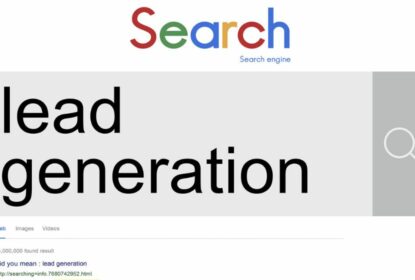A good Pay Per Click (PPC) campaign is a great way to turn on the flow of quality leads coming into your business. Even though you are paying for the ads upfront, it’s an effective investment because of the money you bring in through sales. But it’s important to keep track of your spending and set a PPC ad budget to ensure you are managing the overall costs and optimizing your profit margins.
If you aren’t careful, a PPC ad can quickly get away from you… resulting in a lot of money spent without much of a profit margin to show for it. But there’s no need to worry if you have an effective strategy for managing your PPC results. When you are deliberate about setting a good PPC ad budget, then you always know how much you will be spending and what you can expect in return.
PPC Ad Budget: Calculating Your Ad Spend and ROI
There isn’t a simple answer to determine the ideal PPC ad budget, especially since each campaign varies depending on your industry, product, and target demographic. So, each campaign deserves a personalized strategy, including data analysis to see how your ad spend is turning leads into paying customers.
Here are a few data points to consider when you are evaluating how much to spend on your PPC ad budget:
- Cost Per Click: How much will you be paying for each click that comes through your ad? The cost varies greatly depending on your industry and the competition for the keywords you are bidding on. For example, if you can get clicks for $3 each, then setting a daily ad budget of $30 means that you can bring in 10 leads per day.
- Lead Conversions: Next, consider how many of these leads are converting into paying customers. If you are bringing in 10 leads per day and only 1 of them is converting, then you need to make sure that the profit margins are high enough to return a profit on the sale. Ideally, you will have a higher conversion rate – which can be improved through split-testing and campaign management. A good PPC campaign provides a reliable conversion rate so you can predict your Return on Investment (ROI).
- Sales Team Capacity: Once you’ve dialed in your profit margins on the ads, the next step is to ensure that your sales team can keep up with the influx of leads. It might seem like a good idea to turn up the volume and maximize the number of leads as much as possible. But if your sales team can’t respond to all of the inquiries, then you will be losing money on dead leads. So, maintain close communication with the sales department to ensure they are managing the leads that are coming through.
- Delivering Products and Services: The last point to note is your company’s capacity to deliver the products or services you are offering. For example, if you work in the home renovation industry and your crews can only handle 3 projects at a time, then make sure your PPC ad budget is set to bring in the ideal number of leads to fill your schedule without delaying clients.
Ultimately, looking at the data will help you see how much you are spending for each lead (the Cost Per Lead), as well as the Return on Investment (ROI). These numbers help you determine the ideal PPC ad budget to match your marketing campaign and unique needs.
Making Sure You PPC Campaign is Profitable
The reason why you should be evaluating your PPC ad budget is because you want to make sure you are spending marketing cash with a purpose. It doesn’t make sense to ramp up your ad budget if you are watching money fly out the window without any positive improvement in your profit margins. An unmanaged PPC campaign can actually cut into your profit margins.
Also, keep in mind that if your PPC ad budget is too small, then you might not have a high enough volume to see profitability. When you are only spending a few dollars per day, there aren’t enough clicks or data to determine whether your campaign is successful. On the other hand, too much ad spend could have a negative result if there aren’t enough relevant searches each day to reach your target daily budget.
So, the goal is to find your “sweet spot” – the place where you are bringing in an ideal number of leads, while also managing the amount of money you are spending at the same time.
Tips to Boost PPC Profitability
Here are a few essential tips to consider to make your PPC ads more effective:
- Select the Right Keywords: Choose keywords with buyer’s intent. For example, if you are selling home improvement services, then it probably doesn’t make sense to bid in keywords with “DIY” or “tutorial” in the phrase. These homeowners are likely intending to handle the work on their own instead of hiring a contractor.
- Look at Search Volume: Next, consider how much search volume is coming through for your target keywords. There are advantages to choosing lower search volume, especially if you are a smaller business. Multiple, smaller campaigns can help you bring down the per-click cost and minimize the competition you are up against.
- Target Geographic Areas: If you have a local business, then make sure to set geographic parameters so you are only displaying ads to people in the local area. Then, you can expand your reach if you want to scale the campaigns in the future.
- Consider Time of Day: Only run the ads during the most profitable times of the day. For example, if you are inviting people to call your office for a consultation, then make sure that you are running the ads when there is someone in the office to answer these calls.
Talk to the PPC Experts
Do you want other personalized tips to improve your PPC campaign? ARYU Advertising is here to help. Contact us to schedule a consultation so we can share more information about the current online marketing campaigns that are working for business owners.










